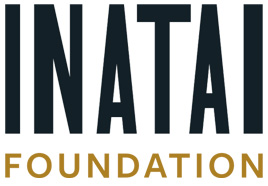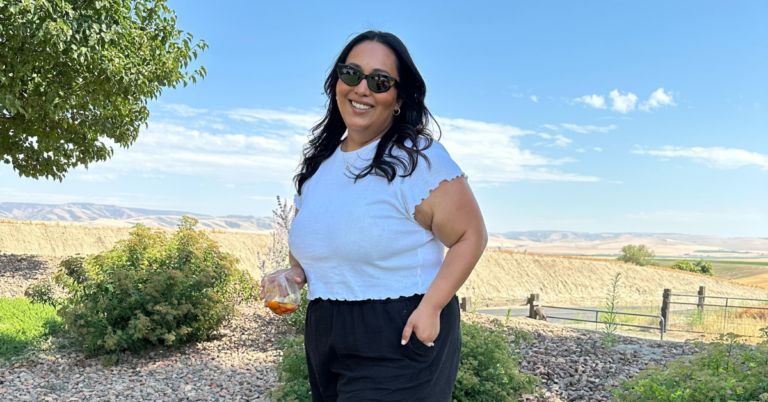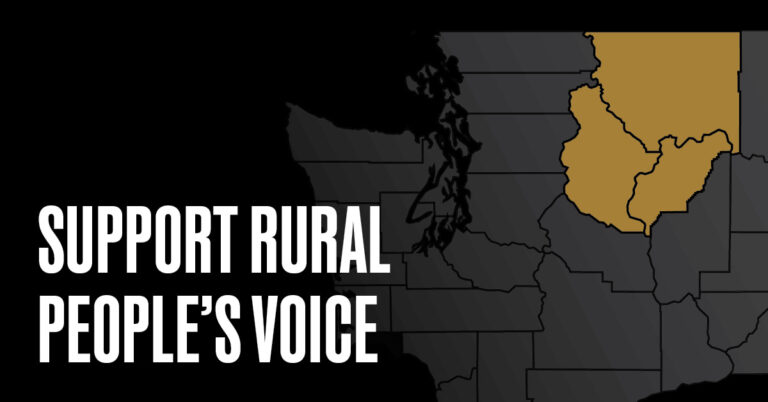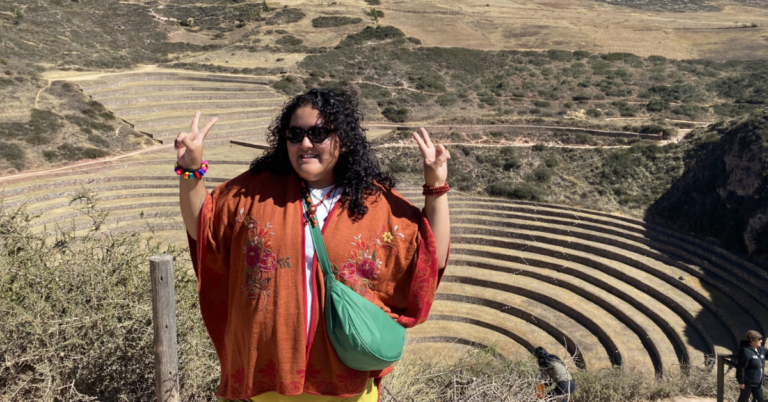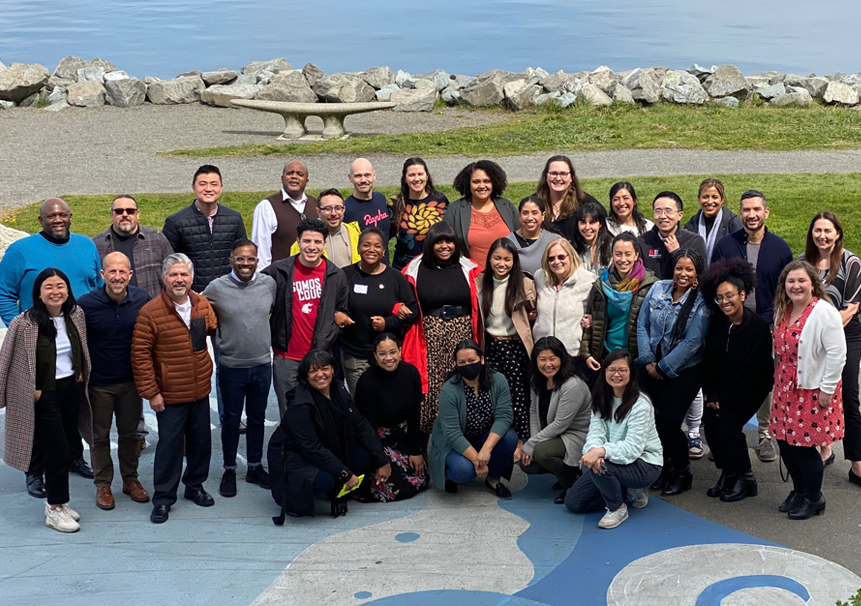
The Inatai Foundation team in Ruston last year at our first in-person team retreat since the pandemic began.
I am happy to share Inatai Foundation’s first evaluation, conducted last year when we were Group Health Foundation. This evaluation includes feedback from more than 100 grantee organizations and outlines areas where we can grow and improve to better support their work throughout Washington. This report comes at an important point in our development as an organization. Within the last nine months, we updated our mission statement and values, changed our organization name, and set our 50-year vision. We are, undoubtedly, moving out of our “start-up” phase and on to a new chapter made possible by everything we have learned from community organizations.
Thank you to the leaders who have shared so much about their work with us during community visits, in grant applications, in conversations with our team, at convenings—and now—through this evaluation. We are grateful for every story, every piece of wisdom, every thoughtful reflection, and especially every hard lesson. We have been through many cycles of listening, learning, and adjusting our work accordingly. Even our recent decision to change our name to Inatai Foundation is the culmination of thoughtful insights and advice shared by the people we most want to be in partnership with.
This evaluation differs from other types of feedback we have received in that it allowed, by design, organizations to speak confidently and confidentially about their experience with us. Last year, our evaluation partners Frontline Solutions either interviewed or surveyed more than 100 leaders of many ethnic and cultural backgrounds, lived experiences, and grantee organizations based in a wide range of geographies.
The Frontline Solutions team asked grantees what they thought of the foundation’s policies, processes, and practices. For example, how do we embody our values? What are our areas for growth? What barriers prevent us from meeting our mission? Another set of questions asked about the support we provide. How do organizations experience their interactions with us? Are our mission, purpose, and values clear? What hopes do organizations have for how we show up?
As a foundation that strives to be statewide, community-driven, and equity focused, we were pleased to learn that our intentions felt true to a large majority of respondents. Grantees appreciated our people-first approach and felt trusted as the experts of their work because of our multiyear grantmaking and minimal reporting requirements. And even though we believe we still have much to learn about the state, we were especially appreciative that people saw the effort we put into listening, earning trust, and building authentic relationships beyond grant transactions. As a new organization, we often focus on the practices we need to improve or strengthen, so we were surprised and happy to hear about the organizational practices that grantees appreciate and want us to share with our philanthropic peers.
We also received constructive feedback. You will read that different communities, by race or geography, had unequal experiences with us. Leaders reported experiencing different levels of trust and access to our team and institution. Organizations in rural areas and mid-sized cities did not feel as engaged as other grantees with regards to learning alongside the foundation and connecting beyond the grantmaking process. Black and Indigenous leaders and leaders in large cities were slightly less likely to agree that Inatai demonstrates a true commitment to racial justice. Organizations with Black leadership are notably less likely than other communities to report that Inatai celebrates their work and humanity.
The insights of Black, Indigenous, and rural leaders are consistent with our own worries about ourselves and with the legacy of philanthropy. This feedback confirms that we must double-down on building relationships, earning trust, and living our values though our actions, choices, and grant investments. We know that it will take time, rigor, and consistency to make amends for our field of practice and to show that we are serious about racial justice.
We have already taken measures to address this feedback. For instance, who we are and what we do have not always been entirely clear. We heard time and again that our former organization name and mission of “health equity” led people to believe we did not support racial justice or equity work unless it had a medical intervention component. This repeated feedback catalyzed our evolution over the last nine months, including naming racial justice and community power as the focus of our 50-year vision.
Inatai will always be a work in progress. The last few years have given us the flexibility to understand our communities’ visions for the future, solidify our priorities, and define to whom we are accountable. Now we are sharpening our focus on a future where powerful communities are driving every decision in our state.
For better or worse, people’s perception of us will shift. As we get to know grantee organizations and earn their trust, we believe leaders will feel even more comfortable giving us honest feedback—a change for the better. We also know that those who have benefited from unequal systems and unfairly held power will feel disrupted, excluded, and may even become oppositional. We will persist on our path forward and our explicit focus on building community power, being truly statewide, and directly focusing on equity and racial justice.
Thank you for taking time to read this report. We are making it publicly available as a form of accountability to grantees and as a resource to our funder partners. Know that the Inatai team welcomes feedback, stories, insights, and reflections at any time.

Nichole June Maher
President & CEO
Inatai Foundation
